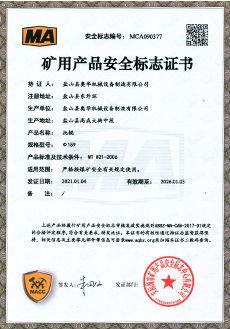 Afrikaans
Afrikaans  Albanian
Albanian  Amharic
Amharic  Arabic
Arabic  Armenian
Armenian  Azerbaijani
Azerbaijani  Basque
Basque  Belarusian
Belarusian  Bengali
Bengali  Bosnian
Bosnian  Bulgarian
Bulgarian  Catalan
Catalan  Cebuano
Cebuano  Corsican
Corsican  Croatian
Croatian  Czech
Czech  Danish
Danish  Dutch
Dutch  English
English  Esperanto
Esperanto  Estonian
Estonian  Finnish
Finnish  French
French  Frisian
Frisian  Galician
Galician  Georgian
Georgian  German
German  Greek
Greek  Gujarati
Gujarati  Haitian Creole
Haitian Creole  hausa
hausa  hawaiian
hawaiian  Hebrew
Hebrew  Hindi
Hindi  Miao
Miao  Hungarian
Hungarian  Icelandic
Icelandic  igbo
igbo  Indonesian
Indonesian  irish
irish  Italian
Italian  Japanese
Japanese  Javanese
Javanese  Kannada
Kannada  kazakh
kazakh  Khmer
Khmer  Rwandese
Rwandese  Korean
Korean  Kurdish
Kurdish  Kyrgyz
Kyrgyz  Lao
Lao  Latin
Latin  Latvian
Latvian  Lithuanian
Lithuanian  Luxembourgish
Luxembourgish  Macedonian
Macedonian  Malgashi
Malgashi  Malay
Malay  Malayalam
Malayalam  Maltese
Maltese  Maori
Maori  Marathi
Marathi  Mongolian
Mongolian  Myanmar
Myanmar  Nepali
Nepali  Norwegian
Norwegian  Norwegian
Norwegian  Occitan
Occitan  Pashto
Pashto  Persian
Persian  Polish
Polish  Portuguese
Portuguese  Punjabi
Punjabi  Romanian
Romanian  Russian
Russian  Samoan
Samoan  Scottish Gaelic
Scottish Gaelic  Serbian
Serbian  Sesotho
Sesotho  Shona
Shona  Sindhi
Sindhi  Sinhala
Sinhala  Slovak
Slovak  Slovenian
Slovenian  Somali
Somali  Spanish
Spanish  Sundanese
Sundanese  Swahili
Swahili  Swedish
Swedish  Tagalog
Tagalog  Tajik
Tajik  Tamil
Tamil  Tatar
Tatar  Telugu
Telugu  Thai
Thai  Turkish
Turkish  Turkmen
Turkmen  Ukrainian
Ukrainian  Urdu
Urdu  Uighur
Uighur  Uzbek
Uzbek  Vietnamese
Vietnamese  Welsh
Welsh  Bantu
Bantu  Yiddish
Yiddish  Yoruba
Yoruba  Zulu
Zulu Optimizing Performance with Impact Idler Roller Technology for Enhanced Machinery Efficiency
The Impact of Idler Rollers in Conveyor Systems
Idler rollers play a crucial role in the functionality and efficiency of conveyor systems across various industries. These cylindrical components serve as support structures that keep belts aligned and facilitate smooth movement, making them essential in material handling operations. Understanding the significance of idler rollers can lead to improved system performance, reduced wear and tear, and enhanced productivity.
The Impact of Idler Rollers in Conveyor Systems
One of the primary functions of idler rollers is to maintain tension in the conveyor belt. Proper tension is critical to prevent slippage, which can lead to uneven material distribution and, ultimately, inefficiencies. By ensuring the belt remains taut, idler rollers help to maintain consistent product flow and reduce downtime caused by maintenance and repairs. Consequently, businesses can enhance their operational reliability and meet production targets more effectively.
impact idler roller

Moreover, the design and material of the idler rollers influence their performance and durability. Rollers are typically made from materials like rubber, plastic, or metal, each offering specific advantages regarding resistance to wear and corrosion. For instance, rubber-lined rollers may provide superior grip and cushioning, reducing impact damage when materials are loaded onto the conveyor. Conversely, metal rollers can withstand heavier loads and are suitable for more demanding environments. Choosing the right material based on the application is essential for maximizing lifespan and reducing costs.
Regular maintenance of idler rollers is vital to ensure optimal performance. This includes inspecting for wear and tear, ensuring proper alignment, and maintaining cleanliness to prevent debris buildup. Neglecting maintenance can lead to increased friction, noise, and, ultimately, roller failure. Scheduled inspections can identify issues before they escalate, allowing for timely repairs that prevent costly downtime.
Furthermore, as industries move towards automation and smart manufacturing, the integration of advanced technologies into conveyor systems is on the rise. Idler rollers are also evolving, with innovations such as sensors being incorporated to monitor performance in real-time, providing data that can predict failures before they occur, thus enhancing reliability and efficiency.
In conclusion, idler rollers are more than just passive components in a conveyor system; they are active players that significantly affect the operational efficiency and longevity of industrial processes. By investing in quality idler rollers, implementing proper maintenance routines, and exploring innovative technologies, businesses can improve their material handling operations, reduce costs, and increase overall productivity. The importance of these seemingly simple components cannot be understated, as they are pivotal to the smooth operation of countless systems worldwide.
-
Revolutionizing Conveyor Reliability with Advanced Rubber Lagging PulleysNewsJul.22,2025
-
Powering Precision and Durability with Expert Manufacturers of Conveyor ComponentsNewsJul.22,2025
-
Optimizing Conveyor Systems with Advanced Conveyor AccessoriesNewsJul.22,2025
-
Maximize Conveyor Efficiency with Quality Conveyor Idler PulleysNewsJul.22,2025
-
Future-Proof Your Conveyor System with High-Performance Polyurethane RollerNewsJul.22,2025
-
Driving Efficiency Forward with Quality Idlers and RollersNewsJul.22,2025





























